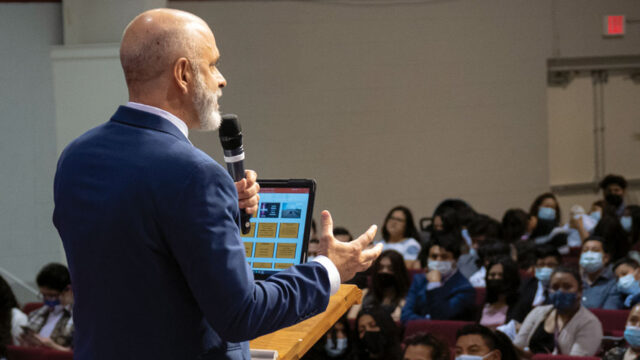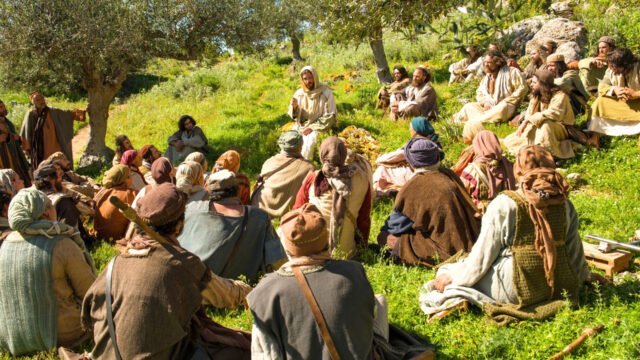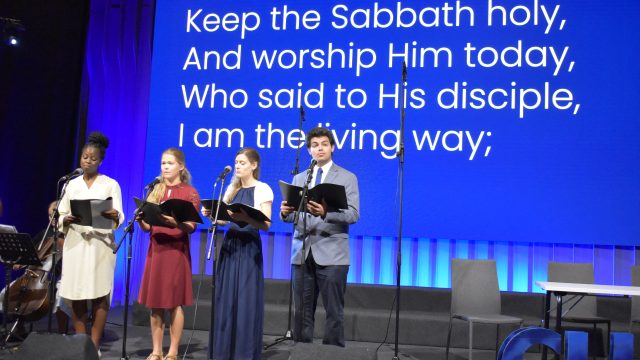Students of Scripture know how to make wise decisions.

When I was a teenager, I read the following graffiti on a wall that left me perplexed: “Freedom is too little. What I desire still has no name.”
Our world seems to have reached the extremes in terms of relativism. People desire the end of all authority and tradition. Many want to be free to alter the own physical anatomy. Pluralism fosters the most diverse readings of the Scriptures. Postmodern theologies seek to dismantle oppressive social structures, supposedly maintained by the Bible, and promote a wide emancipation. Human opinions prevail to the detriment of the knowledge of divine truth.
How is it possible to know what is good and right in this relativistic age?
The Knowledge of God
Hosea prophesied to the tribes of northern Israel shortly before the fall of this kingdom in 722 B.C. Israel had broken its covenant with God and idolatry had plunged the nation into a deep crisis. The worship of the golden calves (Hosea 8:5, 6; 10:5), made by Jeroboam I (1 Kings 12), fomented immorality as had happened at Sinai (Ex. 32:6, 7).
In this crisis, the Lord warns that Samaria “is held guilty, for she has rebelled against her God” and “shall fall by the sword” (Hosea 13:16). Israel’s fall is attributed to the lack of three main virtues: “There is no truth or mercy, or knowledge of God” (Hosea 4:1), the absence of “knowledge” because of the neglect of God’s law (Ps. 119:66) and “the fear of the Lord” (Prov. 1:7, 2:5).
In His mercy the Lord promises restoration. Captivity would be like a “wilderness,” where God would speak to the hearts of His children (Hosea 2:14). Then He would break the enemy’s strength and make His people “lie down safely” again (verse 18). The Messiah would restore Israel because He would be filled with “knowledge” by virtue of the Holy Spirit (Isa. 11:2). By Christ’s manifestation the earth would be filled with the knowledge of God (Isa. 33:6; Hab. 2:14).
The children of Israel were to study and meditate on God’s law, the witness to the covenant with God, in order to have this knowledge. Moses recommended, “These words [the law] shall be in your heart” and “you shall bind them as sign on your hand” (Deut. 6:6, 8). The “meditation” on the law of God was the delight of the psalmist (Ps. 119:97). He had hidden it in his “heart” in order not to sin (verse 11). This “knowledge” depends on meditating on God’s commandments and learning to do good and turning away from evil.
In this sense, biblical religion is an intelligent and instructive experience. The study of, meditation on, and teaching of God’s law is the primary activity by which knowledge of what is good, just, and holy becomes widespread among the people of God and, through them, potentially, the world. God’s people are light as they spread such knowledge among their neighbors.
There is an evident similarity between our time and the context of Hosea. Although religious practices and Bible reading are common today, ethics and biblical values that promote the fear of God are becoming bankrupt. How can we hold the knowledge of God?
Teaching Knowledge
In Israel the knowledge of God was transmitted through worship and the work of the priests, whose lips were to “keep knowledge,” and in whose mouth “people should seek the law” (Mal. 2:7).
Teaching the will of God was a constant activity. In the temple, apart from the rituals, worship had an instructive purpose. David separated the sons of Asaph, Heman, and Jeduthun to “prophesy with harps, stringed instruments, and cymbals” (1 Chron. 25:1). In the synagogues, serving the Lord was synonymous to studying God’s law.
In the New Testament, the knowledge of God is manifested in the teaching of Christ (Luke 1:77) and the apostles based on Scripture (2 Tim. 3:16). John states that “eternal life” consists in “knowing” God and Jesus Christ (John 17:3). Paul refers to the knowledge of God as the content of true religion (Col. 1:9). The rejection of this knowledge results in practicing “things which are not fitting” and a life of “unrighteousness, sexual immorality, wickedness, covetousness, maliciousness” (Rom. 1:28, 29).
On the other hand, the knowledge of God leads to “the unity of the faith” and the “perfect man, to the measure of the stature of the fullness of Christ” (Eph. 4:13).
Why wouldn’t we want to have God’s law in our hearts?
The Love of Truth
From an end-time point of view Paul predicts that the Holy Spirit will withdraw from the earth. The reason given is that those who reject the truth are so disoriented that they “believe the lie,” have “pleasure in unrighteousness,” and consider the wicked as divine (2 Thess. 2:7-11; 4; see Rev. 13:3, 4).
Ellen White echoes Paul’s words, saying, “Only those who have been diligent students of the Scriptures and who have received the love of the truth will be shielded from the powerful delusion that takes the world captive.”1
Simple Bible preaching and story reading is not enough to address the complexity of current-day relativism and disappearing ethics. The fear of God depends on meditating on God’s law, which was given to guide us in moral and ethical decisions and choices.
As the psalmist did (Ps. 119: 97, 113), God’s people are called to “love” the truth. Those who love the Word of God long to study it in depth, feed on it, and abide by it. In fact, biblical truth is learned and loved when it is obeyed.
Ellen White adds, “The study of the Scriptures is the means divinely ordained to bring men into closer connection with their Creator and to give them a clearer knowledge of His will.”2 According to her, “the people of God are directed to the Scriptures as their safeguard against the influence of false teachers and the delusive power of spirits of darkness.”3 In our current context, the counterfeit is so similar to the truth that it is impossible to distinguish between them without scriptural discernment.
To face postmodern relativism, God’s people must maintain a personal experience with the will of God as revealed in His Word. The experiential knowledge of heavenly ethics revealed through the Scriptures enables us to distinguish between holy and profane, and to disciple others to make the same choices.
Suggestions for Prayer:
- Ask God to help us dedicate ourselves to regular Bible study.
- Pray that, through our study of the Scripture, the Lord will protect us from deception.
- Ask God to bring into our lives others who are thirsting for truth, so that we can share our knowledge of Him with them.
1 Ellen G. White, The Great Controversy, (Mountain View, Calif.: Pacific Press Pub. Assn., 1911) p. 625.
2 Ibid., p. 69.
3 Ibid., p. 593.








